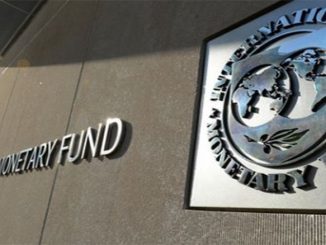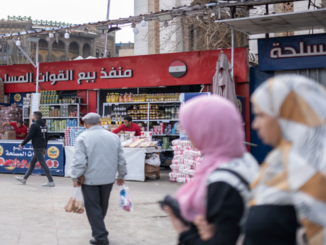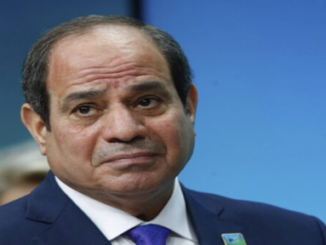
The International Monetary Fund (IMF) arrived to Caro for a 14-day visit, during which time Egypt is expected to respond to IMF inquiries amid continued negotiations for a $12 billion loan.
The visit is expected to finalize negotiations over the $12bn loan that Egypt hopes will support economic stability and sustainable growth. The IMF will try to make sure that all its requests will be fulfilled by the Egyptian government to finalize the loan agreement.
Government sources have pointed that the IMF mission will request that the Egyptian government implement the capital gain tax (CGT) to increase the tax base and revenues.
In July 2014 as a part of an economic plan to broaden the tax base, the CGT on the sales of non-inventory assets was previously approved by Abdel Fattah Al-Sisi. In May 2015, the CGT was put on hold for two years after investors criticized and protested against the tax and the stock market witnessed a sharp drop.
The sources also added that the mission asked the Egyptian government that it should reduce domestic debt and also advised that the government start decreasing the public spending while improving tax collection efficiency in order to increase Egypt’s revenues.
At an earlier time, the Central Bank of Egypt (CBE) announced that the domestic debt has reached 2.59 trillion between July and September in fiscal year (FY) 2015/2016. The domestic interest rate for FY 2016/2017 is projected to reach EGP 284.6 billion.
In fact, the IMF will monitor the Egyptian economy performance indicators as budget deficits, cash reserves, local CBE assets, and the loans obtained by the Egyptian government in the previous period, to ensure the government’s commitment.
In the same context, IMF’s deputy spokesperson William Murray stated that the amount of funding that the IMF will provide to Egypt depends on the result of the IMF’s evaluation of Egypt’s funding needs and the efficacy of the economic programme adopted by the Egyptian government.
Accordingly, the Egyptian government is willing to modify the economic programme in order to comply with the IMF’s requests member in Egypt’s parliament.
In this context, subsidy cuts are back to the government’s agenda which is serious about curbing fuel subsidies and repricing government services, a government source told al-Borsa newspaper last week.
Fuel subsidies, in particular, are expected to be on the agenda during the IMF talks, the official added, and Cairo Metro riders could face rising ticket prices. Although none of these policies are new it’s the first serious talk of subsidy cuts since al- Sisi hiked fuel prices in July 2015.
A senior official at the Transport Ministry said that the ministry has delayed plans to raise the price of Metro ticket, and the announcement of new electricity prices was postponed for two weeks. These new prices were supposed to come into effect for next power bill, but power companies have held off on that, as the Ismail cabinet is reviewing the pricing scheme, an Electricity Ministry source tells Al-Borsa.
In the same context, the parliament is trying to take steps towards amending the public sector. “The Public Sector Companies Act must be amended”, said the unnamed MP, and four state-owned companies are ready to float, El Sharkawy apparently told the House.
Three state-owned banks could be on the auction block for partial privatization, and some MPs are reportedly in favour of selling minority stakes in one or more of them to a strategic investor. Banque du Caire is the only public bank to have been mentioned as a candidate for an initial public offering(IPO), although officials have previously said they were studying the sale of stakes in Arab African International Bank, United Bank of Egypt and Banque Misr. In January, CBE Governor Tarek Amer that two unnamed state-owned banks would IPO this year. Economics committee member Ashraf Al Araby tacitly linked the move to the IMF talks.
The negative impacts of IMF loan according to experts
Amr Adly an expert in Carnegie said that the loan will cover current payments as the public deficit and the dollars’ shortage crisis which are all items without revenues and this strategy will enter the country in a borrowing loop in order not to get bankrupted. He said that it is similar model to what is happening in Greece.
Wael Gamal-an economic expert-said that Egypt will pay an expensive price in the future with the increase in the public and foreign debt and the absence in the foreign currency sources.
In the same context, Ehab Saeed -a financial analyst – said that there are negative impacts to the IMF loan as the increase in the debt. He also added that there will be other effects on the social level as the government will most probably adopt austerity policies some will be related to the wages after the adoption of the civil service law that will lead to a strong wave of inflation.
Moreover, the economic expert and counselor Ashraf Dawaba said that the new loan will enslave Egypt as it will lead to floating the Egyptian currency, increasing the interest rate, and the inflation rate. He also added that it will decrease the wages, the subsidies on the fuel, but the taxes will increase. As a result, the IMF policies will ruin the Egypt’s fortunes, he said.



